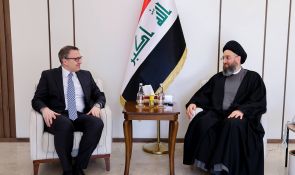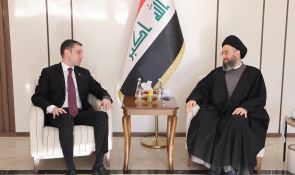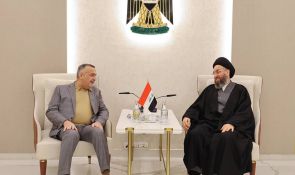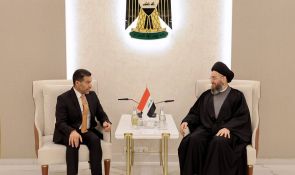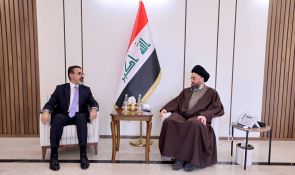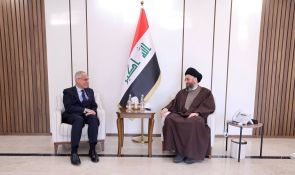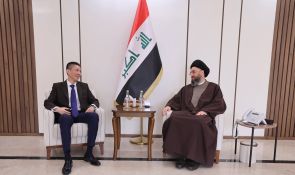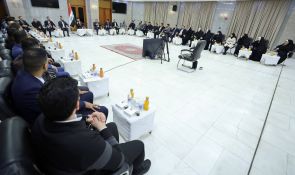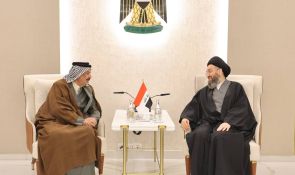Sayyid Al-Hakeem Early elections are aimed at addressing political deadlock, which is not currently achievable
Before the iftar gathering, Sayyid Al-Hakeem invited a group of media leaders and opinion-makers to seize the remaining blessed days of Ramadan for supplication and seeking forgiveness. His Eminence also extended his greetings to the Kurdish Fayli brethren on Fayli Kurd Day and commemorated the International Day of Al-Quds on the last Friday of Ramadan.
H.E. emphasized that public satisfaction is the most important criterion for measuring government success. The current government has achieved unprecedented accomplishments due to the political, social, and security stability witnessed in the country. He explained that these achievements are the result of previous accumulations, which have contributed to providing a positive working environment in addition to the administrative experience the current Prime Minister gained from his previous positions.
H.E. clarified that regional stability is linked to Iraq's stability, proven by experience, citing the impact of the ISIS crisis, as affirmed by world leaders, from its inception to its decline on the region and the world.
H.E. stressed the importance of spreading positive vibes and understanding the nature of the previous phase and the burdens borne by Iraqis due to regional and international considerations. H.E. emphasized prioritizing Iraqi interests while building common interests with others. He also highlighted the need for continuity in government projects, calling for a logical and objective comparison between past and present achievements to inform the current generation about the current level of accomplishment and development in the provinces.
H.E. emphasized that the government's success has been supported by political backing from the coordination framework and other political forces in the State Administration Coalition. H.E. underscored the importance of maintaining equations that preserve balance and understanding without relying solely on pure digital facts.
H.E. emphasized that early elections are aimed at addressing political deadlock, which is currently unattainable, and that repeating early elections will plunge Iraq into a state of chaos with no benefit to the country, in addition to the technical and realistic difficulty of achieving them. H.E. explained that these propositions do not go beyond their media framework and have not been discussed in the corridors of political decision-making.
H.E. stressed the necessity of adhering to balance and stability with the electoral law, indicating that the law used in the recent local elections has proven its efficiency in terms of representation and proportionality between votes and seats, giving everyone their natural proportions. He emphasized that balance achieves stability, and stability attracts reconstruction, popular satisfaction, and solidifies the political system. H.E. also emphasized the prevention of officials from exploiting the country's resources for electoral purposes, stating that the prevailing proposal currently is the resignation of officials six months before the elections for those who decide to run, excluding the Prime Minister.
H.E. affirmed Iraq's ability to confront ISIS challenges, noting that the existential threat from ISIS has been eliminated. H.E. suggested that the response would be long-term and varied, forcing others into constant vigilance and psychological warfare. Moreover, H.E. condemned the targeting of the Iranian consulate in Syria, viewing it as evidence of Israel's desperation and anticipating a long-term and diverse response to compel others into constant alertness and psychological warfare.


